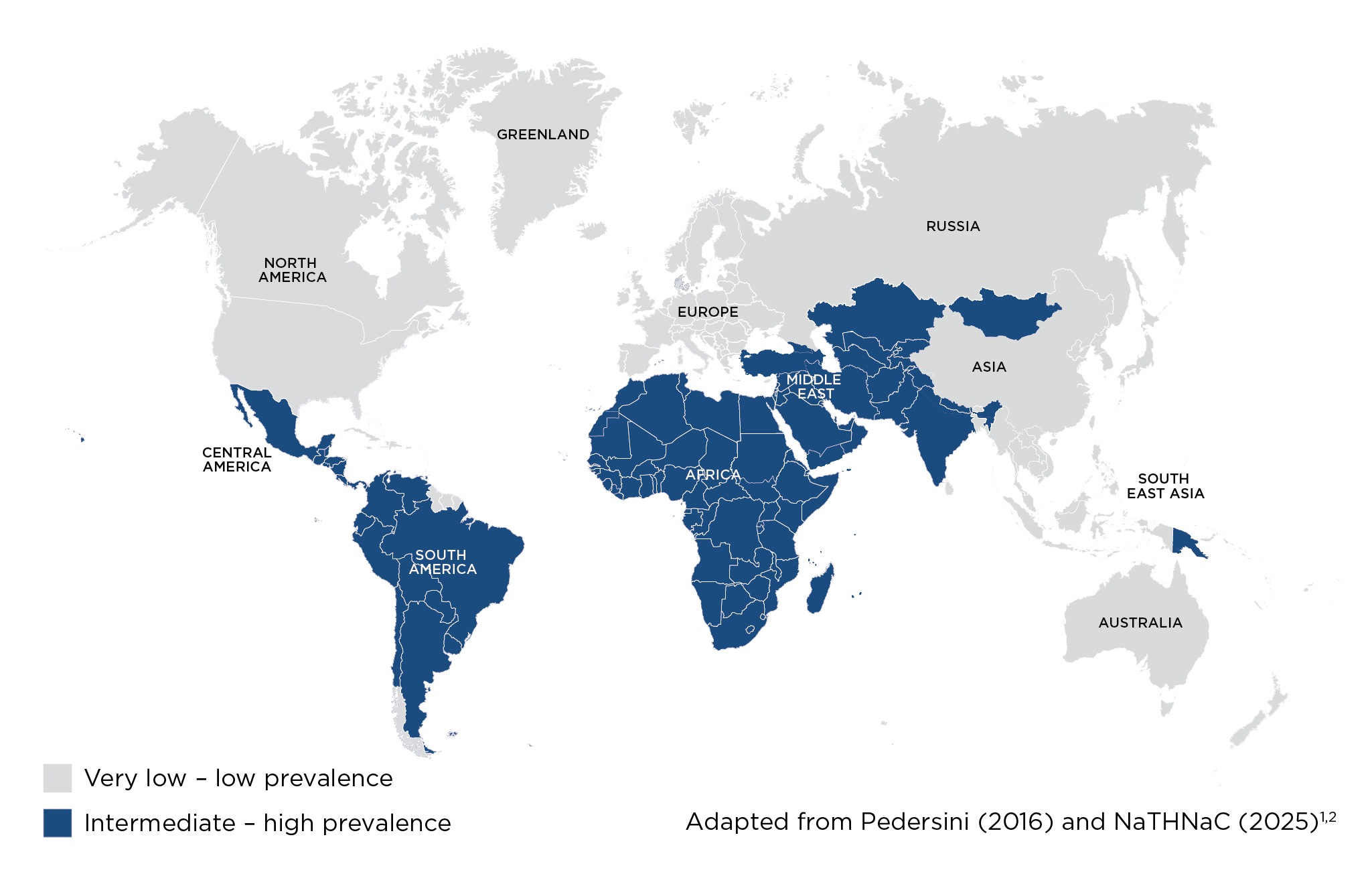Recovering from hepatitis A symptoms may be slow and can take several weeks or months.3
Disease video
Risk areas for Hepatitis A

FAQs
-
Key fact
-
How do you get hepatitis A?
By eating food or drinking water contaminated by faeces from someone who has the virus. Hepatitis A can also be transmitted through close physical contact with an infectious person or through the use of recreational drugs using contaminated equipment.3,4
-
Which countries are affected by hepatitis A?
Hepatitis A is found across the world, but in some areas the prevalence is higher, in particular in parts of Africa, Asia, the Middle East, and Central and South America (see map).1-4
-
What are the symptoms of hepatitis A?
Symptoms usually occur 2-4 weeks after being exposed, therefore you may start to feel ill when you are back home after your trip. Fever, flu-like symptoms (such as tiredness, headache and muscle pains), diarrhoea, nausea, discomfort in the abdomen, dark-coloured urine and jaundice (yellowing of the skin and whites of the eyes) are all potential symptoms of hepatitis A.3,4
-
How serious is hepatitis A?
In most cases, hepatitis A is not serious. People usually get better within a few months and suffer no long-term effects3. In rare cases, hepatitis can cause life-threatening complications such as liver problems, especially for the elderly.3,4
-
Can I prevent getting hepatitis A?
You can take the following precautions to help reduce your risk of infection:
- Visit your nearest convenient pharmacy or specialist travel health clinic for a risk assessment before your trip.
- Drink bottled water and avoid food and drink which may have been prepared by someone infected with the virus and has not washed their hands properly, or washed them in water contaminated with sewage.4
- Avoid eating shellfish and raw fruit and vegetables.4
- Practice safer sex and do not share needles.4
Ready to get started? Check now for your nearest travel health clinic.
Get friendly advice from the UK's largest network of travel clinics*.
* This list is not exhaustive and other travel health providers are available.
References
- Pedersini R, et al. HAV & HBV vaccination among travellers participating in the National Health and Wellness Survey in five European countries. Travel Medicine and Infectious Disease. 2016;14(3):221-232.
- NaTHNaC. Topics in Brief. Hepatitis A. Available online: https://travelhealthpro.org.uk/disease/70/hepatitis-a (Last accessed May 2025)
- World Health Organization. Fact sheets. Detail. Hepatitis A. February 2025. Available online: https://www.who.int/en/news-room/fact-sheets/detail/hepatitis-a (Last accessed May 2025)
- NHS. Conditions A to Z. Hepatitis A. October 2022. Available online: https://www.nhs.uk/conditions/hepatitis-a/ (Last accessed May 2025)
UK-BOTB-2500022 May 2025
